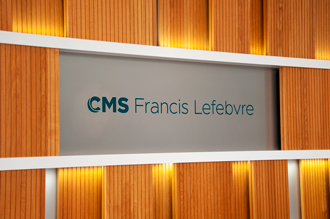
As a result of the Covid-19 crisis, performance of your contracts may have become more difficult. French law can help you to renegotiate your contracts with your business partners.
What are we talking about exactly?
It should first be noted that the following observations are not about the “force majeure” case.
As a matter of fact, force majeure only concerns obligations whose performance is no longer possible (on the concept of force majeure and its possible use in the context of the Covid-19 epidemic, see our article and our Q&A).
Here, however, we will discuss contracts and resulting obligations whose performance has become very difficult, but not impossible:
- either because performance of the contract or contractual obligation now proves to involve an excessive burdensome cost compared to the cost initially anticipated, making the agreed consideration inadequate;
- or because the contract or contractual obligation can no longer be performed under the conditions initially foreseen by the parties at the time the contract was concluded, as it now requires more time or a greater effort.
The law provides a remedy for these contracts and obligations whose performance has become substantially more difficult than before: “revision for unforeseen circumstances”.
What exactly does the law provide concerning revision for unforeseen circumstances?
Since Ordinance no. 2016-131 of February 10th, 2016 reforming contract law, governing contracts concluded after October 1st, 2016, revision for unforeseen circumstances is set out in Article 1195 of the French Civil Code, which provides that:
“If a change of circumstances which was unforeseeable at the time of conclusion of the contract makes its performance excessively costly for a party which had not agreed to assume the risk thereof, that party may ask its co-contracting party to renegotiate the contract. It continues to perform its obligations during the renegotiation.
In the event of refusal or failure of the renegotiation, the parties may agree to terminate the contract, on the date and under the conditions to be determined by them, or ask the court, by mutual agreement, to adapt it. In the absence of agreement within a reasonable time, the court may, at the request of a party, revise or terminate the contract on the date and under the conditions it defines.”
Article 1195 of the French Civil Code therefore assumes that three conditions are met:
- a change in circumstances, unforeseeable at the time the contract is concluded;
- which makes its performance excessively costly for a party; and
- the said party has not agreed to bear the risk.
If these conditions are met, renegotiation of the contract may be initiated by the party penalised by the change of circumstances, which must nevertheless continue to perform its commitments during the renegotiation period.
In case of refusal or failure, the parties may agree to terminate the contract on the date and under the conditions to be determined by them, in case of failure to do so, a court may be asked to adapt the contract or order its termination.
Does the Covid-19 crisis constitute an “unforeseeable change in circumstances” allowing renegotiation of a contract?
This will largely depend on the date on which the contract was concluded and its performance conditions in practice.
It will therefore be necessary to check:
- the exact date of conclusion of the contract (before or after October 1st, 2016), Article 1195 of the French Civil Code being applicable only to contracts concluded after October 1st, 2016;
- the reality of the excessive costliness of performance of the contract for a party – that reality only being able to be assessed in practice, on a contract-by-contract basis, with supporting figures;
- the existence of a hardship clause setting out the conditions for notifying unforeseeable circumstances, the terms of the negotiation between the parties and, more generally, the entire contractual process agreed in this respect. If applicable, the effects of the unforeseeable circumstances will be those provided for in the contract;
- the potential existence of a clause explicitly excluding revision for unforeseen circumstances or application of Article 1195 of the French Civil Code.
In short, even if the assessment of each individual case is essential, revision for unforeseen circumstances remains a possible option in response to the Covid-19 epidemic.
For more information, our Litigation & Arbitration team is at your entire disposal.
Insight: impacts of the Covid-19 outbreak
Our law firm provides you with legal assistance to understand all Covid-19 (Coronavirus) impacts on your business. Discover our special Insight below.
Find more about our law firm:
Our law firm is a leading international business law firm. Its deep roots, unique positioning and highly recognised expertise enables it to deliver innovative, high value-added solutions in tax, business, corporate and labour law.










